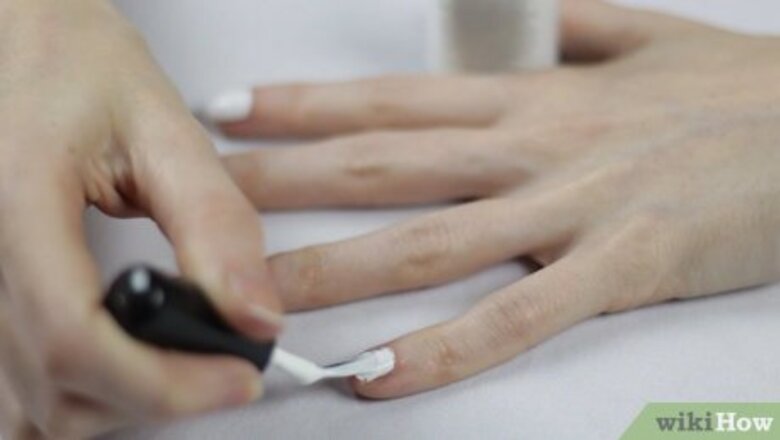
views
Preparing the Marbled Water
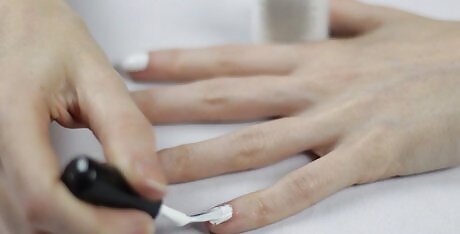
Apply a base coat to your nails. As usual, apply a clear base coat to prevent staining and keep your polish lasting longer. A couple coats of solid white polish over that will brighten your colors. Wait until the last coat dries before you continue.
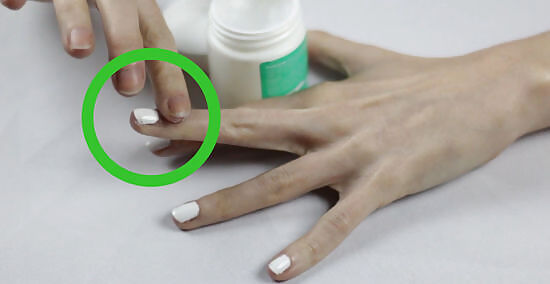
Protect your fingers. Your fingers are going to get messy, so make sure the nail polish won't stick to them. You can cover them with petroleum jelly, Elmer's glue, cuticle oil, or scotch tape. Cover your fingers at least up to the first joint, and the underside of your nail as well.
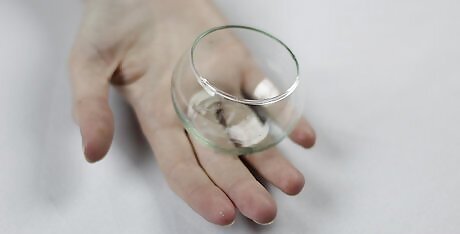
Choose a small cup. A shot glass or a mini paper cup are about the right size. There's a chance this is permanently stained, so pick something you can throw away or keep as a permanent "nail polish cup." Nail polish is toxic, but small quantities are not extremely dangerous. If you use a glass bowl and wash it thoroughly afterward, it's probably safe to use for other purposes.
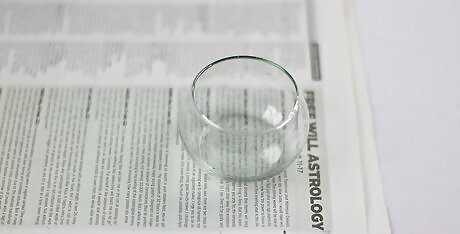
Put down newspaper. Cover your table with newspaper to catch spilled polish. This gets messier than nail painting.
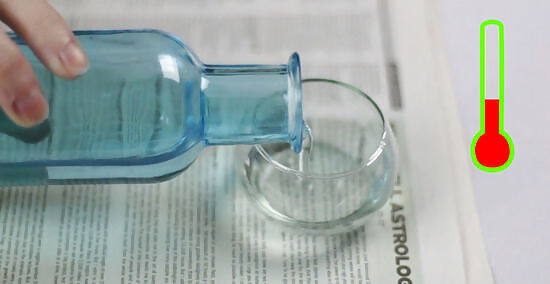
Fill the cup with room temperature water. This should keep the nail polish together without making it set too quickly. You might need to try a couple times, with water slightly warm or cool. Keep it about 3/4 full, to prevent spilling. Filtered water seems to slow the drying of the nail polish, giving you more time.
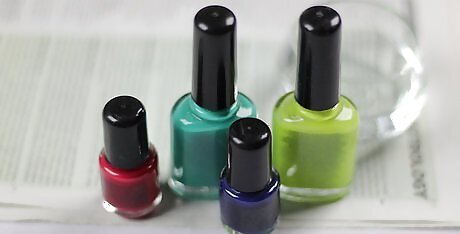
Choose your nail polish. Choose at least two colors that stand out from each other. Have a few backup bottles in different brands just in case, since not all polish works as marbling. The marble effect uses a lot of nail polish, so stay on the cheaper side. Use relatively new polish if you can. Old polish tends to set too quickly. Unscrew all your lids and leave them loose, so you can do the next steps quickly.
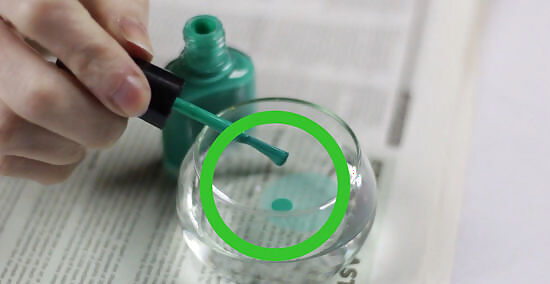
Drip one color onto the water. Hold the wand over the water surface and wait until a single drop falls. It should spread out a little across the surface. If it stays clumped in the center, rotate the glass until it thins slightly. Some nail polishes sink. You might have to try a couple before you get a nice, floating circle.
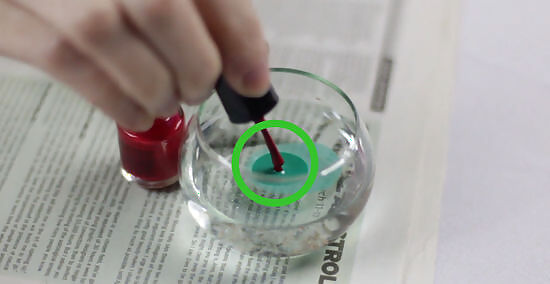
Repeat with other colors. Pick up a second color and drop a new drop right in the center of the first circle. You can stop here, or keep going with more drops. Three or four drops is usually a good amount, but you can use up to 12. If you only have two colors, use your first color again for the third drop.
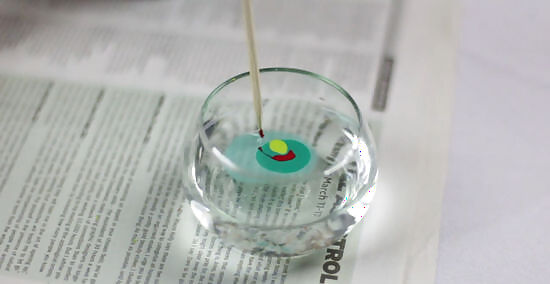
Move a toothpick through the circles. Carefully place a toothpick tip in the center of the inner ring. Drag it through the colors to create patterns. Don't take too long: you'll need to dip your nail in before it dries. For a simple but beautiful pattern, draw lines outward from the same point, like sun rays. For a tie dye look, move the toothpick in a spiral pattern.
Decorating Your Nail
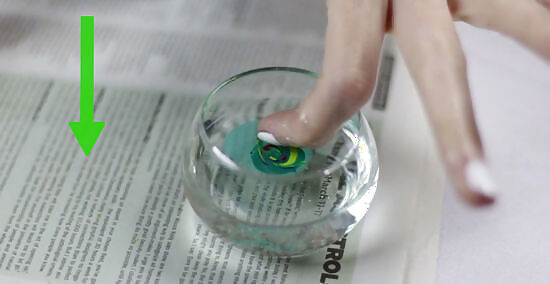
Hold your nail on the pattern. Slowly lower your nail onto the pattern on the water surface. Set it down straight on top. Hold it there long enough for the nail polish to stick. This can take a few seconds, or up to a full minute — you might have to experiment.
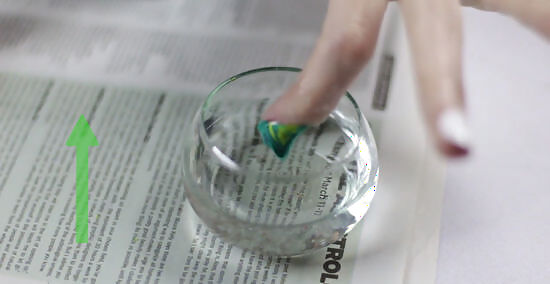
Lift it out carefully. Make sure you don't drag your nail through the polish on the way back up. The pattern should be on your nail. If the nail polish around your finger has solidified, use a toothpick to break it apart before lifting your finger.
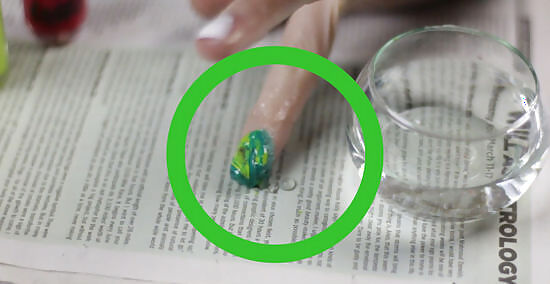
Flick away the water. Too much water can leave bubbles or gaps on your nail. Flick away the water droplets onto your newspaper.
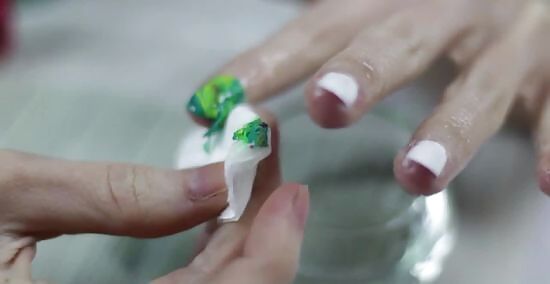
Clean your fingers. Wipe away the polish around your nail using a cotton swab. If you coated your finger thoroughly at the beginning, it shouldn't be too hard to clean. If the polish sticks to your skin, dip the swab in nail polish remover. If you used tape, leave it on until the polish dries. If you're not satisfied with the design, wipe it off and try again. You'll get better with practice.
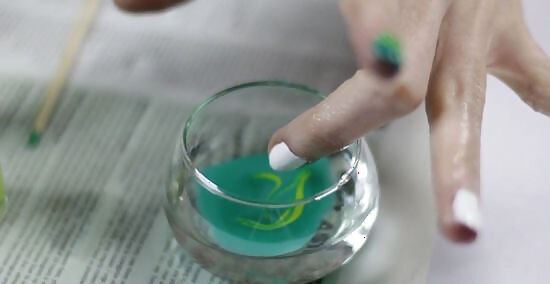
Start again with the next nail. Spin a toothpick in the water and the nail polish will move to the edge of the cup, leaving you space to start on your next design. Repeat for as many nails as you like. If there are still flecks of color on the water surface, add another drop of polish. Spread it out with your toothpick, let it dry for a few seconds, then pull it up. It should drag the flecks away with it.
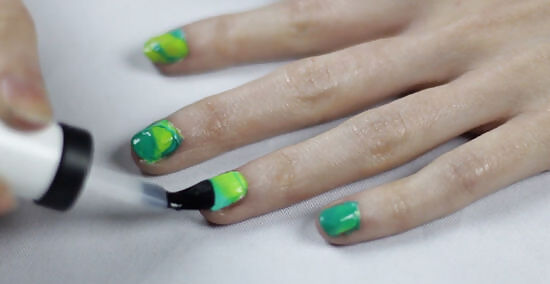
Apply a top coat once dry. Seal it in to prevent chipping, and enjoy the beautiful patterns.




















Comments
0 comment